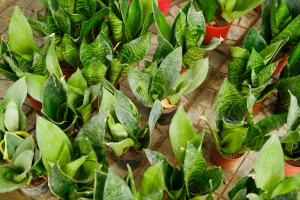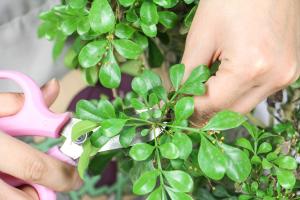How to Save a Dying Money Tree Plant
Money tree plants (Pachira aquatica) are popular indoor plants known for their ability to bring wealth and prosperity. However, just like any other plant, they can be susceptible to various problems that may cause them to decline or die. Fortunately, there are steps you can take to save a dying money tree plant.
Identify the Problem
The first step in saving a dying money tree plant is to identify the problem. There are a few common issues that may cause your plant to decline, such as:
Overwatering
Underwatering
Low humidity
Pest infestations
Fungal or bacterial infections
Once you have identified the problem, you can take the necessary steps to save your plant.
Adjust Watering Habits
Overwatering and underwatering are common problems that can cause a money tree plant to decline. If you suspect that either of these issues is causing your plant's problems, it's important to adjust your watering habits.
Generally, you should water your money tree plant when the top 1-2 inches of soil feel dry to the touch. Water the plant until the excess water drains out of the bottom of the pot, then allow the soil to dry out again before watering it again.
Improve Humidity
Money tree plants are native to tropical regions and prefer high humidity. When indoor air is dry, the plant's leaves may turn brown and crispy. To improve humidity around your plant, you can:
Mist the leaves with water
Place a tray of water near the plant
Use a humidifier in the room
Fight Pest Infestations
Money tree plants can be vulnerable to pest infestations, such as spider mites, mealybugs, and scale insects. If you notice signs of these pests, such as webbing, sticky residue, or small bumps on the leaves, it's important to take steps to eliminate them.
You can use insecticidal soap, neem oil, or other natural or chemical treatments to kill the pests. Be sure to follow the instructions carefully and treat the plant regularly until the pests are gone.
Treat Fungal or Bacterial Infections
If your money tree plant is showing signs of fungal or bacterial infections, such as spots, wilting, or a foul odor, it's crucial to take immediate action to treat the problem. You may need to:
Remove infected leaves or stems
Prune the plant to improve air circulation
Apply a fungicide or bactericide
It's important to follow the instructions carefully and continue treating the plant until the infection has been eliminated.
Potting and Soil
If all else fails, you may need to repot your money tree plant or change the soil to provide fresh nutrients and eliminate any root problems that may be causing its decline. Choose a pot that is slightly larger than the current one and use a well-draining potting mix. Be sure to water the plant carefully after repotting to avoid overwatering.
Conclusion
Money tree plants are attractive and beneficial indoor plants, but they can be vulnerable to various problems that may cause them to decline or die. By identifying the problem and taking appropriate action, you can save a dying money tree plant and restore its health and vitality.

 how many times do yo...
how many times do yo... how many planted tre...
how many planted tre... how many pine trees ...
how many pine trees ... how many pecan trees...
how many pecan trees... how many plants comp...
how many plants comp... how many plants can ...
how many plants can ... how many plants and ...
how many plants and ... how many pepper plan...
how many pepper plan...






























